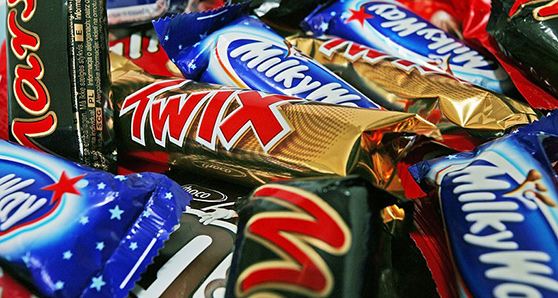Background
Before the opening up of the country to foreign imports in the late 90s, the chocolate market was, at best, virtually nonexistent, and relied primarily on:
Retailers exercised their own initiatives to source world-renowned chocolate brands. An informal network of pilots and air stewards were directly recruited by Key Grocers to actively bring in chocolate from the duty free shops they visited, and, at the time, they were the only reliable source for fresh chocolate in Sudanese shops and homes.
Cross-border traders also faced the arduous task of bringing in goods, across land, from neighboring countries in Trucks and Lorries. The heat would melt the chocolate before the product had even crossed the border. Much to the detriment of the consumer, the product was often in an appalling state upon arrival.

The Beginning
Given the gap in the market, and with customers and consumer urging us on, we saw a real potential for the direct import and distribution of a premium chocolate brand into the Market, and the quest began in 1999 when Alamir and Mars began talks. Three years later, Alamir was assigned as the distributor for Mars brands, and the project was launched.
From the onset, and even though we were number one in the candy confectionary market with other brands, we knew that we would have to “learn” the business of chocolate, and that the recipe for success was to deliver the right product portfolio at the highest possible quality and value with consistency to the consumer to win their hearts.
Actions
- Working closely with the principal, a tailor made success plan was devised and implemented.
- A separate entity, Unibrands, was formed to give independence and focus solely on the Mars business.
- The company invested in a temperature controlled branded fleet of vans and built a temperature controlled warehouses, and a standby generator to offset the risks associated with the numerous power outages at the time.
- In 2001, there was only one truck in the whole of Sudan which could transport refrigerated containers from Port Sudan to Khartoum, and the monopoly had a negative impact on the price of inland freight. By lobbying successfully with the transportation industry, we were able to highlight the importance of this facility and the opportunity that existed, helping to increase the fleet available to transport our refrigerated containers. (Years later, the company would purchase its own truck for this purpose).
- There were no formal suppliers of temperature controlling equipments until a year later, so the first vans were actually storing the chocolate using insulated bags and freezable blocks to keep the chocolate at the right temperature, a solution provided to us by Hubbard UK. Each bag had a thermometer for sales agents to keep track of the temperature, and the bag-and-block method was instrumental in the delivery of quality chocolate in the early days.
- The right route to market was defined, rigorous sales & merchandising trainings were performed and perfected in the market.
- To complement the Pan-Arab TV campaigns that were picked up by Sudanese consumers on their satellite dishes, Low cost / high visibility marketing programs were implemented to get the biggest bang for our buck at the point of sale and where the decision to buy took place.
Results
Within the first year, Unibrands had surpassed the Mars market estimate by three fold, and it was only a matter of time that Mars brands became Sudan’s favorite chocolate brands, dominating at the point of sale and delivering on their promises to the Sudanese consumer, and pioneering the chocolate category much to the delight of the consumer.

